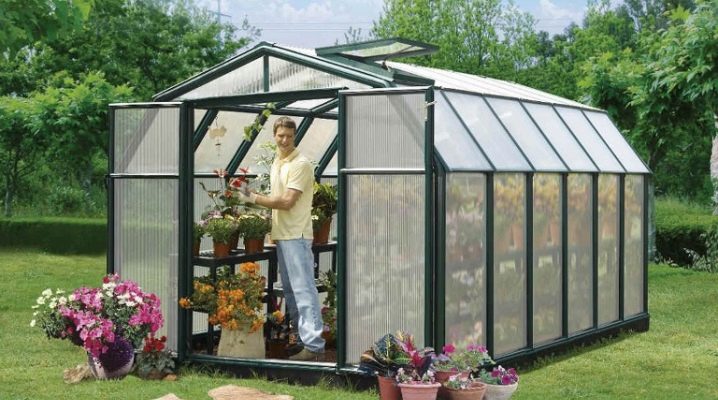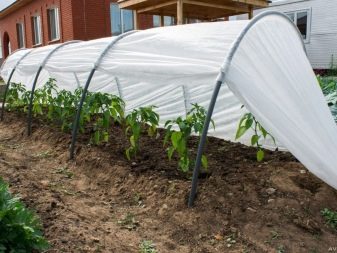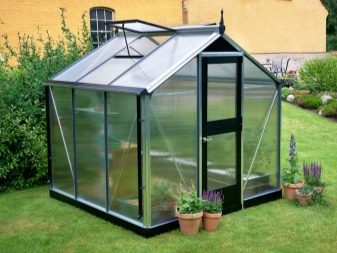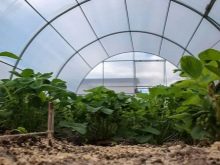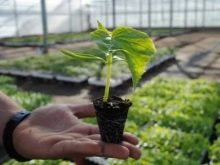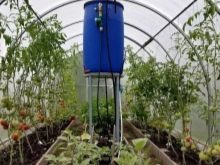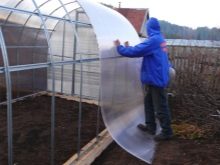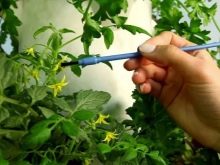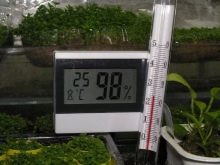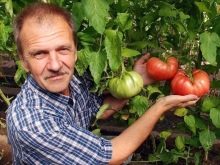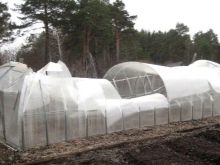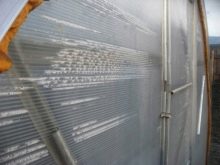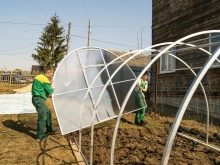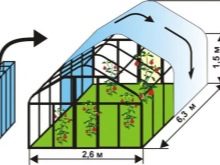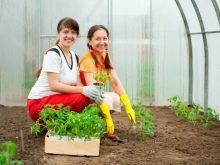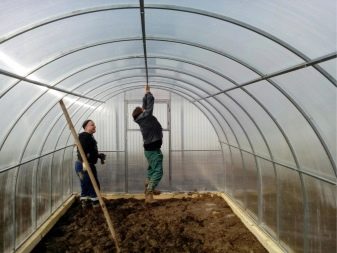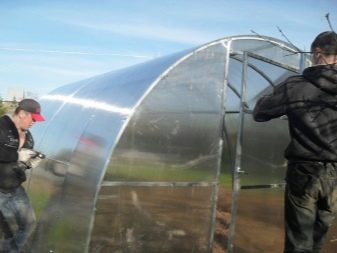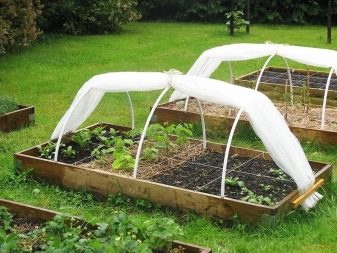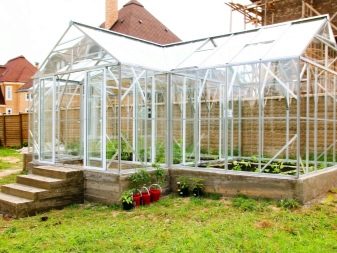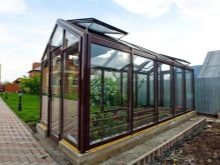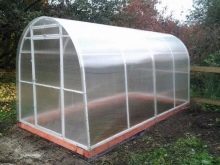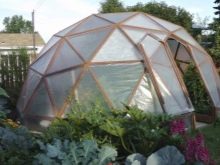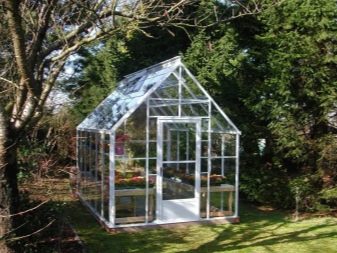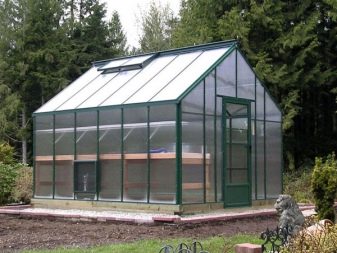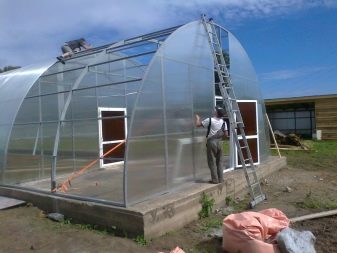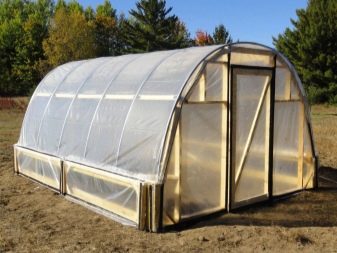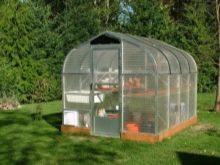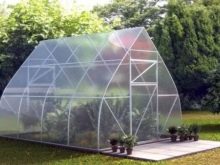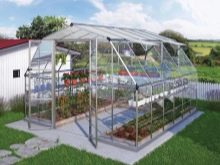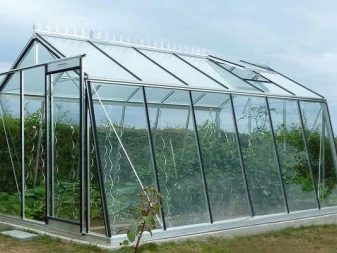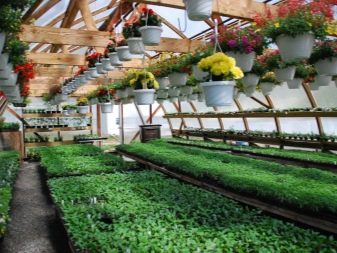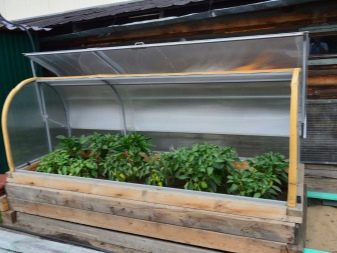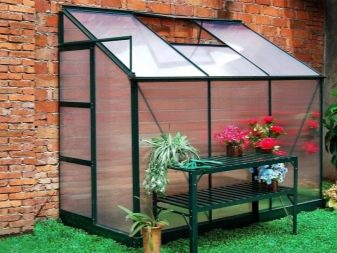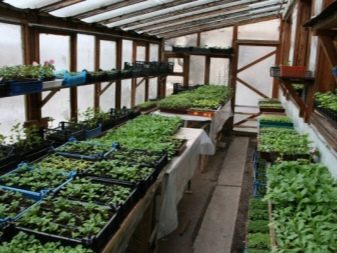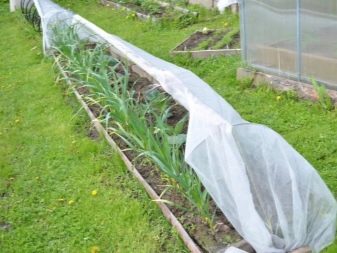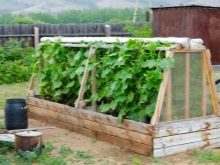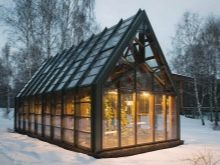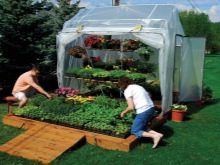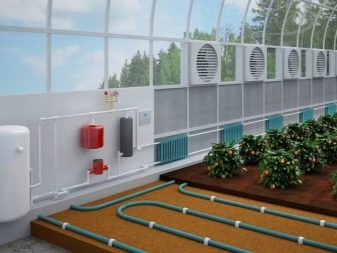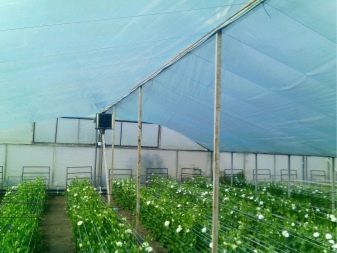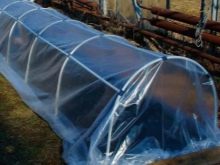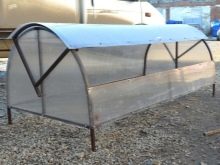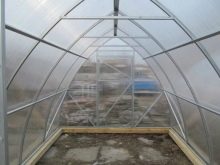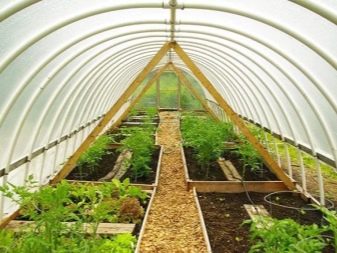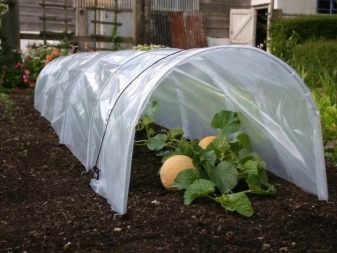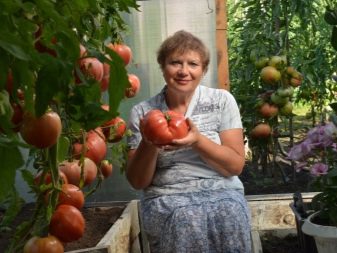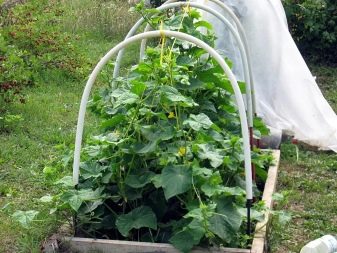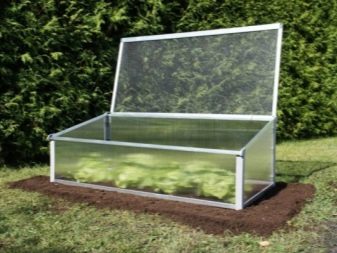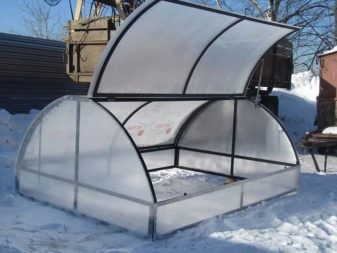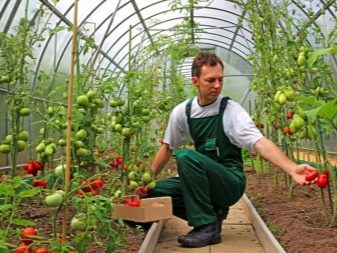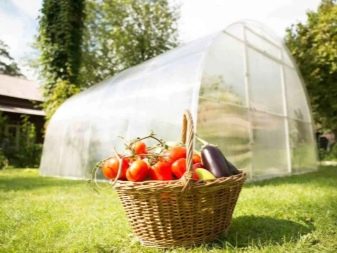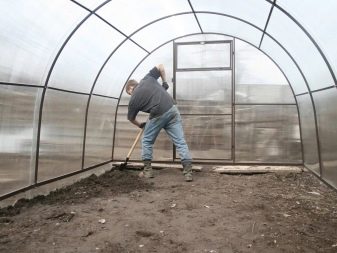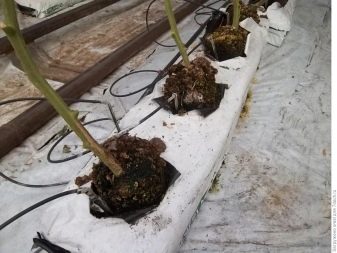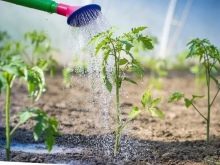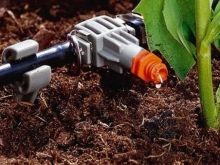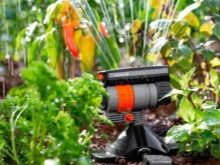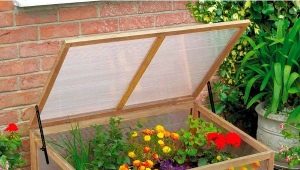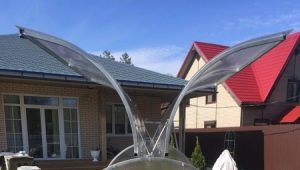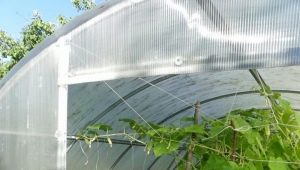What is the difference between a greenhouse and a greenhouse?
A greenhouse or greenhouse makes it possible to get good yields, regardless of climate change. Vegetables and greens from your garden are really useful, because you know exactly what plants were processed with, and therefore you will not have to risk health.
Advantages and disadvantages
Greenhouses provide many benefits:
- The main advantage of growing plants in closed ground is the extension of the growing season. In a greenhouse made of cellular polycarbonate, seedlings can be planted 1-2 weeks earlier than the usual planting dates for a particular region.
- Plants are in a sealed isolated space. In greenhouses it is more convenient to carry out preventive and curative measures. Perhaps the full implementation of methods of organic live farming without the use of chemicals.
- Modern greenhouses are successfully equipped with technical innovations.For example, automatic irrigation systems, which work is carried out in accordance with the specified parameters. The system creates optimal conditions, and therefore increases the yield by an average of 15-30 percent.
With all the positive qualities of the negative properties of greenhouses also exist.
- Constructions are not assembled without appropriate skills, and learning takes time.
- The coating material of most greenhouses - polycarbonate, it is unstable to scratches.
- The strength of the material deteriorates with time of use due to exposure to UV rays.
- In the open space of the plant insects are pollinated, without this there is no harvest. In isolated conditions, the gardener must take care of pollination, or he will have to buy self-pollinating plants. In addition, it is necessary to monitor the state of humidity, temperature, because without the appropriate conditions, the pollen of plants falls, the fruit also can not wait.
- Professionals do not recommend growing the same plants in the greenhouse at the same place. Cultures must be reversed to cause less damage to the plants.The harvest will deteriorate from year to year if the same crops are left in the same place.
- If the greenhouse is not properly collected, condensation will form inside.
- Polycarbonate tends to narrow and expand due to temperature differences. In winter, polycarbonate greenhouses often crack in places of bends and fixings.
- Over time, the use of aesthetics of the building is reduced due to the fact that the transparent polycarbonate becomes turbid, and the color burns out.
The main advantages of greenhouses are:
- convenience and ease of movement;
- low weight;
- ease of installation;
- inexpensive price;
- no need to install the foundation;
- in high levels of moisture conductivity - the plants do not require frequent watering;
- in the absence of the need for special tools and equipment;
- in the optional ability to adjust the width and height of the equipped greenhouse;
- excellent thermal conductivity, so that plants can be protected from frost and frost penetration.
Among the main disadvantages of greenhouses are the following:
- low wind resistance;
- insufficient height of the structure, which is why the choice of plants that can be grown is limited;
- Due to the peculiarities of fastening the covering material to the frame, it is difficult to replace it in case of damage.
Working with a greenhouse or greenhouse requires knowledge of certain nuances. To get rid of possible problems that may arise during operation, we clarify the main differences, which will allow the use of structures with maximum productivity.
Main differences
The greenhouse and greenhouse are characterized by their application features. A greenhouse is a structure, usually of small size, designed to save the plant from bad climatic conditions, in particular, from periodic subzero temperatures in the spring. As plants grow, gardeners move them to open ground. The greenhouse shelter is usually lightweight, intended for use in one season.
The greenhouse is characterized by a more robust and complex structure. The difference lies in the installation methods.
For a greenhouse, for example, we need a base, roof and walls, which, under artisanal conditions, are made of a wide variety of materials. Apply carbonate, film cover, glass. Profile of a classic greenhouse made of aluminum or galvanized.Wooden profile greenhouses require periodic tinting and antiseptic treatment. If the greenhouse is covered with plastic wrap, enough for 2-3 seasons. In addition, this material will provide poor quality insulation. Usually film covers are taken away with the arrival of the weather. Consider the constructive varieties of greenhouses and greenhouses in more detail.
By design
The design of the greenhouse is more voluminous, massive, and often provides for the installation of the foundation. Types of greenhouses and greenhouses are similar, for example, they are dvukhskatnymi. This design is easier to implement independently. This type can be considered year-round, since in winter it will not break under the weight. The gable roof includes a wide range of coating materials.
Of the disadvantages of dual-slope structures - not very high-quality tightness. The massiveness of the dual slope roof requires a reinforced base.
The positive characteristics of the arched design are that it allows more light to pass through. Cultures in such structures grow to a greater height than in dvukhskatnyh structures. Of the negative points there is a complicated care of tall plants.
Another unpleasant moment is possible deflections and breaks in the arched structure in winter. If there are strong winds in the region, arched structures are often demolished due to poor frame anchors to the foundation.
The unusual and rarely used construction of greenhouses and greenhouses is drop-shaped. The advantages of the structures are many. First of all, the snow on such a roof will definitely not linger. Secondly, the warming of the soil in spring is noted as more effective. The only negative quality of the design - the complexity of installation.
Polygonal versions of greenhouses and greenhouses can be found even less often than the previous version. Polygons are more suitable for use as a greenhouse. They are often made from different types of combining materials.
Plants get more heat and light due to the external features of the Dutch greenhouse. The design helps to remove excess moisture, and also eliminates the effect of droplets due to condensation. In addition, the Dutch greenhouse is resistant to strong winds.
It is easy to equip a greenhouse with an additional system for adjusting the level of sunlight penetration.The greenhouse itself can be equipped with stationary heaters or a whole boiler room. Inside you can equip an automated irrigation system.
If structurally greenhouses and greenhouses are similar, then the exterior design is still different because of the size. Greenhouses are not equipped with doors and vents, as for the care of plants it is enough to remove the side of the structure. The height of the greenhouse is usually from 2 meters. The construction includes doors and vents.
By location
As far as mobility is concerned, greenhouses can be considered a better option, since it is easier to move a small structure from place to place. Moving greenhouses will be more difficult.
By dredging into the ground
Inside the greenhouse, high beds are usually settled; sometimes plants are arranged on special racks.
Greenhouses settle in with a hollow in the ground, plants are located directly on the surface. The soil in the greenhouse requires mandatory mulching.
By type of operation
The operation of the greenhouse is non-year-round. It is designed for growing plants in the early stages or for growing low-growing crops.The greenhouse can be operated year-round.
In winter designs, you can grow not only the usual vegetables and flowers, but also exotic fruits. For capital winter construction necessarily need a foundation. Summer greenhouses are operated from spring to autumn. With a cold snap, structures can be additionally heated by artificial means. In summer greenhouses, as in greenhouses, bio-heating is often used by compost, manure or humus.
By equipment
Greenhouse does not include any additional equipment. In the greenhouse you can spend water, a comfortable heating system.
According to the materials
According to the materials of manufacture, both structures may be identical. For example, both structures have a frame. A protective cover or carbonate is often used as a protective material for both the greenhouse and the greenhouse.
The arched view of the roof has a greenhouse and greenhouse. This is a kind of protection from the ingress of water inside. The liquid flows down without any problems.
Selection rules
When choosing a structure, you need to evaluate:
- the period that the plant should be in a protected ground;
- plant growth;
- financial opportunities.
With a limited budget and the desire to grow early vegetables it is better to choose a greenhouse. It can be installed somewhere in the middle of spring, and dismantled immediately after harvest. On the vacant place you can plant other types of plants. The most inexpensive option for seedling shelter is film.
If early cultivation of such crops as cucumbers, tomatoes is planned, it is better to take care of the stationary installation of the greenhouse. The cheapest design is made of metal frame, covered with plastic wrap. Polycarbonate sheets - a more expensive option. However, such structures are considered to be resistant, as they are not deformed due to bad weather conditions. Interesting options are combined buildings.
Interesting options
In recent years, the market is replete with greenhouses, which cover polycarbonate sheets. Greenhouses are equipped with side vents, with which it is convenient to carry out ventilation.
The frame of such greenhouses reliable metal. Often such structures are mounted on a stationary foundation. The wooden or brick bases are applied.Modern manufacturers offer functional equipment for greenhouses, so that the difference between the two types of structures virtually disappears.
Modern facilities are distinguished by a variety of forms and functional content. However, the prices and installation costs often force gardeners to look for ways to independently perform certain options. Before the choice is to calculate the economic benefits of the planned project.
For example, a greenhouse that will provide for the needs of a family is of one kind, of a completely different kind, if it is selected to generate additional income. Investments in the second project will be much more significant.
Stationary models of arched or dual-slope greenhouses are more often suitable for those who live on the site year-round. Since there are frequent cases of theft at dachas, it is better to choose a collapsible greenhouse, which can be easily removed with the end of the season.
There are interesting variants of growing and irrigation systems installed in greenhouses or hotbeds.
There are ways:
- on the ground;
- in various mixtures: peat, coconut, expanded clay, perlite, and mineral wool are used.
Irrigation methods are:
- simple, using a watering can;
- semi-automatic;
- fully automated.
The parameters listed above are easy to change after installation of the greenhouse. Therefore, it is possible to minimize the cost of these systems, and take into account only the strength and durability of the chosen materials of the frame and coating.
For details on polycarbonate greenhouses, see below.
